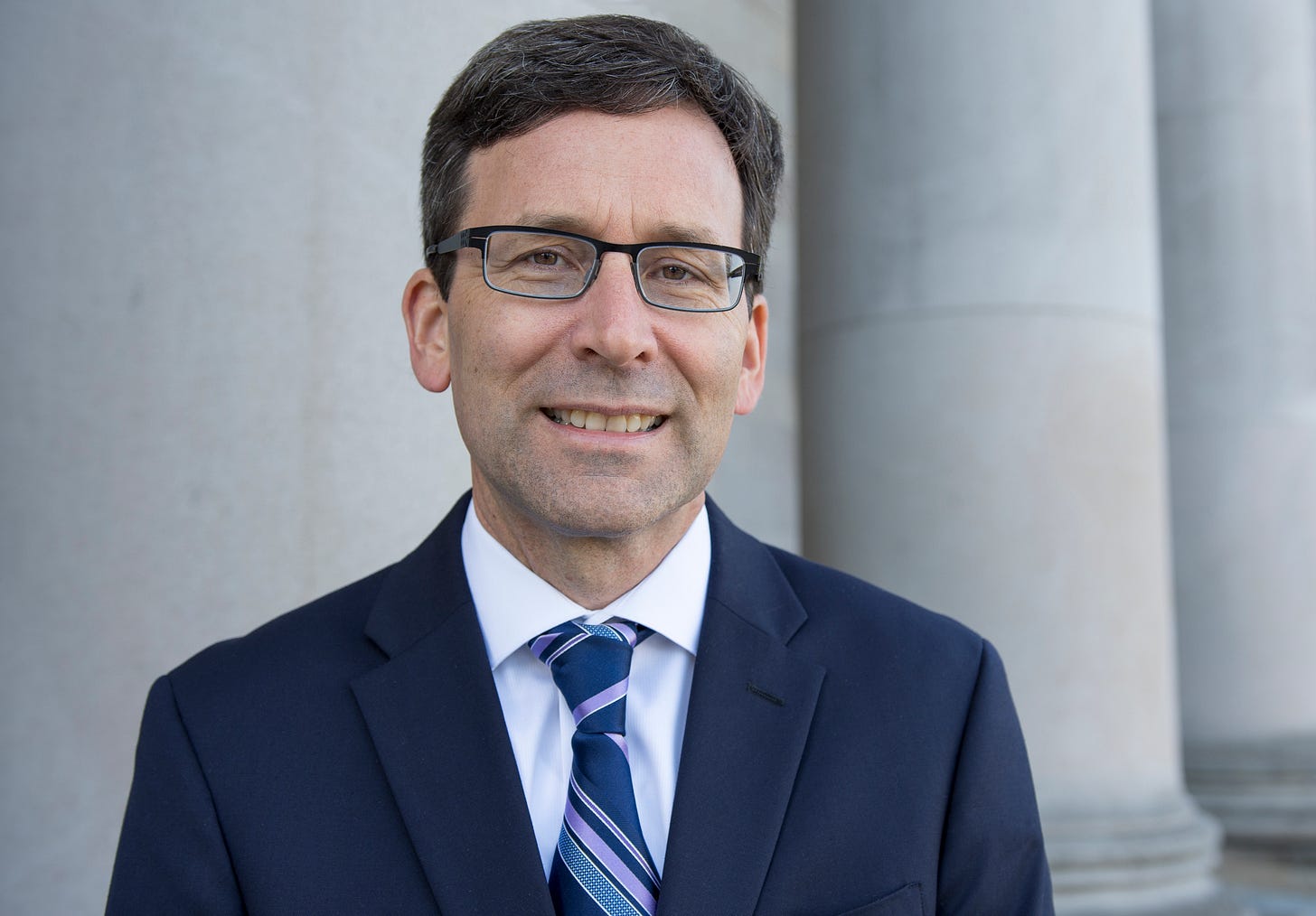Seattle Archdiocese Refuses to Cooperate In Clergy Abuse Investigation, AG Says
The probe focuses on whether the Church used charitable funds to cover up abuse.
By Gary Gately
Washington State’s attorney general on Thursday accused the Archdiocese of Seattle of refusing to cooperate in an investigation into whether it illegally relied on charitable funds to cover up allegations of decades of “pervasive sexual abuse” by clergy.
AG Bob Ferguson filed a petition in King County Superior Court seeking to force the archdiocese to turn over records on clergy abuse allegations going back decades. The petition also seeks to compel Seattle Archbishop Paul Etienne to appear for a deposition to answer questions under oath.
“Washingtonians deserve a public accounting of how the Catholic Church handles allegations of child sex abuse and whether charitable dollars were used to cover it up,” Ferguson said at a press conference. “As a Catholic, I am disappointed that the Church refuses to cooperate with our investigation. Our goal is to use every tool we have to reveal the truth and give a voice to survivors.”
Ferguson’s office is also investigating whether the Diocese of Spokane and the Diocese of Yakima spent charitable funds to cover up child sexual abuse by clergy, but the two dioceses have until later this month to comply with subpoenas.
The Seattle archdiocese disputed some of Ferguson’s allegations and said it has cooperated with his investigation since receiving a subpoena last July.
“The Archdiocese of Seattle welcomes this investigation because we have a shared goal of abuse prevention, healing for victims and transparency,” the archdiocese said in a statement.
But Ferguson said the archdiocese has refused to cooperate with civil subpoenas issued by his office last summer and last month.
In response to the subpoenas, the archdiocese has produced no documents that had not already been made public, citing an exemption as a religious institution, Ferguson said.
The archdiocese countered that it offered to provide private deposition documents on Monday, but that the attorney general’s office said it was not interested.
The AG’s office said the documents it sought this spring include financial records on how the archdiocese may have spent charitable trust money to move priests to different parishes after they were accused of sexual abuse.
But, Ferguson said, the archdiocese notified the AG’s office this week that it objects to the subpoena and would not comply by the May 10 deadline.
“The Church has more information than it has shared with the public,” Ferguson said. “We believe the public is entitled to see those records."
Spokane's diocese said in a statement Thursday that its Chapter 11 bankruptcy case in 2004 “clearly revealed how the Diocese of Spokane dealt with all historic cases of sexual abuse,” adding that the diocese “is unaware of any new cases of child sexual abuse.”
Yakima's diocese said in a statement that the subpoena is not authorized by any statute and violates the First Amendment of the U.S. Constitution and Washington State’s constitution.
The diocese said “there are already many public resources available for the information being sought,” adding: “We cannot publicize everything in our records, however, to respect the privacy and confidentiality rights of, among others, both victims and falsely accused clergy. And so, we will vigorously assert our First Amendment rights.”
The Seattle, Spokane and Yakima dioceses are organized under Washington State law as a type of corporation known as a “corporation sole” that holds assets in trust for religious and charitable purposes.
The AG’s office maintains it has authority under the state’s Charitable Trusts Act to investigate organizations’ use of charitable funds.
Ferguson’s office said “there is reason to believe that the Seattle Archdiocese knew about certain priests’ abusive behavior, but used its resources to protect and support the abusers instead of their victims.”
In 2021, the Washington State Supreme Court ruled that a statutory religious exemption from a state law did not cover a church’s secular activities when exempting the church from the law would affect another person’s fundamental rights.
While Washington’s Charitable Trust Act contains an exemption for religious organizations, Ferguson argues that there is no reasonable grounds for applying this immunity to an investigation focused on sexual abuse. Therefore, his office says it has the authority to investigate whether the Church has misused charitable trust funds to “cover up systemic sexual abuse and shield abusive priests.”
Ferguson, a Democrat who is running for governor, became the 23rd attorney general to publicly announce an investigation into the Catholic Church.
The Church has in recent years made a number of reports about clergy sexual abuse, including publicizing the names of current and former priests that it determined to have been “credibly” accused of sexual abuse.
These claims are evaluated by the Church itself. When state attorneys general have conducted their own investigations, some have found a dramatically greater number of credible allegations. For example, when the Illinois Attorney General’s Office published its report in 2023, it listed four times as many substantiated child sex abusers than the dioceses of Illinois had previously disclosed — 451 compared with 103.
After Ferguson’s announcements, Heal Our Church, an advocacy group for survivors of clergy abuse, said in a statement: “For too long, the faithful have been kept in the dark regarding the ‘how and why’ of this sordid chapter of Church history. We call on the Church, and its legal representatives, to cooperate fully with the investigation by granting full access to all relevant records, including internal chancery memos, attorney correspondence and financial information. Church members and survivors deserve no less.”



